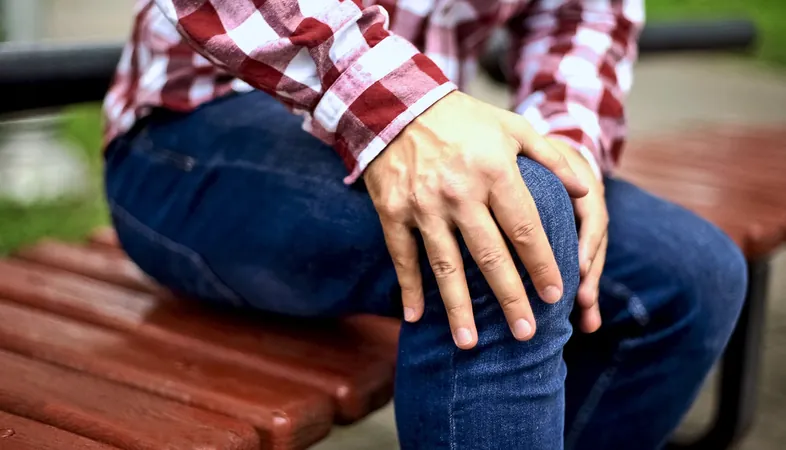
Revolutionary Gait Training Could Be Key to Easing Knee Arthritis—No Drugs or Surgery Required!
2025-08-27
Author: Jia
A Breakthrough in Osteoarthritis Treatment
Could the answer to easing arthritic knee pain lie in your stride? A groundbreaking new study suggests that a simple change in how we walk may provide relief for the millions suffering from osteoarthritis—a debilitating condition affecting nearly a quarter of people over 40.
The Burden of Osteoarthritis
Osteoarthritis is notorious for causing pain and disability due to the degradation of cartilage in our joints. With limited options available—primarily pain management medications or eventual joint replacement—researchers are eager to find new, noninvasive treatments.
Introducing Gait Retraining
Researchers have turned their attention to gait retraining, revealing that a minor adjustment in foot angle while walking can lead to significant pain relief. In a year-long study published in The Lancet Rheumatology, participants who altered their walking mechanics experienced relief comparable to medication, while also showing reduced cartilage deterioration.
The Science Behind the Stride
Scott Uhlrich, co-leader of the study from the University of Utah, explains that the study is unique: "We've known that higher knee loads speed up the damage in osteoarthritis, and adjusting foot angle can help mitigate that load. However, personalized approaches had not been tested in rigorous settings until now."
Personalized Approach Yields Promising Results
Targeting patients with mild-to-moderate osteoarthritis in the knee's medial compartment, researchers emphasized personalization in their methods. Unlike past trials that applied the same treatment to everyone—which sometimes worsened symptoms—they carefully determined each participant's optimal walking adjustment. The innovative approach resulted in better outcomes for participants.
How the Study Worked
Participants underwent initial assessments, including MRIs and walking tests on a pressure-sensitive treadmill to develop customized walking strategies. Over six weekly training sessions, they were guided through new foot positions with biofeedback devices to ensure adherence to their new gait.
Exciting Outcomes!
After one year, report results highlighted a remarkable decrease in knee pain among those in the intervention group, estimated to rival effects from common pain relievers like ibuprofen. Additionally, MRIs indicated that cartilage health markers improved in this group, offering a glimmer of hope for long-term relief.
A New Era for Osteoarthritis Treatment
Participants expressed enthusiasm over the non-invasive nature of the treatment, emphasizing the joy of not relying on drugs or external devices. With many individuals in their 30s to 50s facing years of pain management prior to any surgical options, this method could potentially fill a significant treatment gap.
Looking to the Future
While the gait retraining process is currently complex and time-consuming, researchers are optimistic about its future. Uhlrich envisions a day when this approach can be easily administered in physical therapy settings, perhaps even aided by mobile technology like smartphone video and smart shoes.
Join the Movement!
With ongoing investigations set to validate these findings and broaden their applications, individuals suffering from osteoarthritis may soon have a novel, effective pathway to reclaim their quality of life—without the need for traditional medical interventions.



 Brasil (PT)
Brasil (PT)
 Canada (EN)
Canada (EN)
 Chile (ES)
Chile (ES)
 Česko (CS)
Česko (CS)
 대한민국 (KO)
대한민국 (KO)
 España (ES)
España (ES)
 France (FR)
France (FR)
 Hong Kong (EN)
Hong Kong (EN)
 Italia (IT)
Italia (IT)
 日本 (JA)
日本 (JA)
 Magyarország (HU)
Magyarország (HU)
 Norge (NO)
Norge (NO)
 Polska (PL)
Polska (PL)
 Schweiz (DE)
Schweiz (DE)
 Singapore (EN)
Singapore (EN)
 Sverige (SV)
Sverige (SV)
 Suomi (FI)
Suomi (FI)
 Türkiye (TR)
Türkiye (TR)
 الإمارات العربية المتحدة (AR)
الإمارات العربية المتحدة (AR)